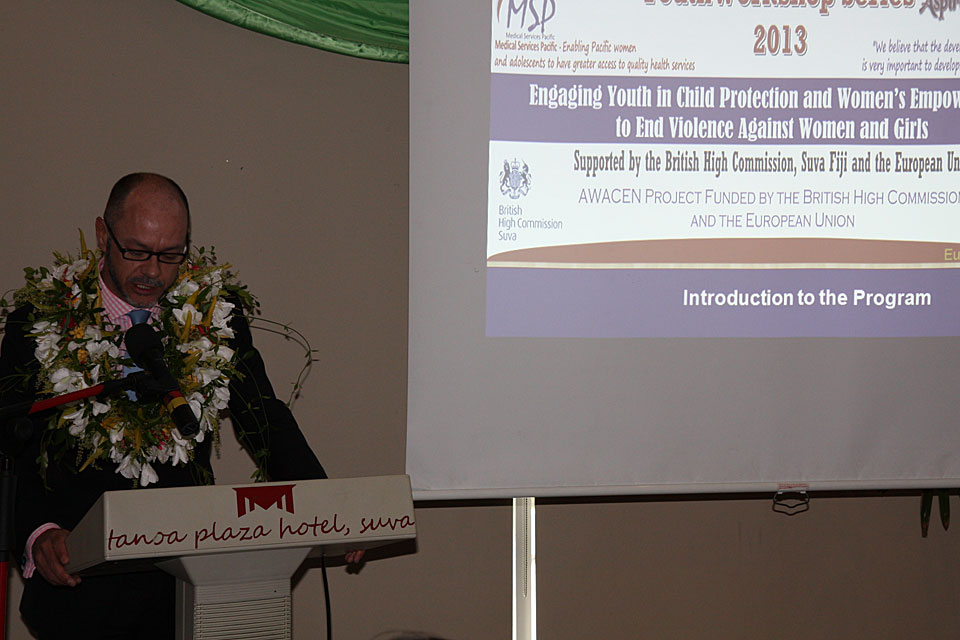Speech by the Acting High Commissioner: Engaging youth in child protection and women’s empowerment to end violence against women and girls
The Acting High Commissioner gave a speech at a workshop which aimed at engaging youth in child protection and women’s empowerment to end violence against women and girls.

Ladies and gentlemen, I am delighted to have the opportunity to address you today on the occasion of the opening of this workshop, which has been organised by Medical Services Pacific and the Aspire Network with funding from the British High Commission and the European Union.
The subject of today’s workshop is: Engaging Youth in Child Protection and Women’s Empowerment to End Violence against Women and Girls.
I cannot overstate the importance of this initiative. Violence against women and girls is a terrible reality that affects the lives of millions worldwide. The UN estimates that as many as 7 out of 10 women will experience violence in their lifetimes. These statistics are shocking and they are unacceptable.
Tackling violence against women and promoting gender equality, both at home and internationally, is a priority for the UK Government. Our actions are founded on firmly held principles. We believe that where women live free of violence, have equal access to education, healthcare, political and economic opportunities societies are healthier, more prosperous and more peaceful. This is our goal.
Our work – in the UK and overseas – is guided by a cross-government strategy. It has the ambition of ending violence against women. The international element is championed by our Minister for International Development, Lynn Featherstone.
The UK is also one of the principal supporters of United Nations Security Council Resolution 1325, the founding resolution for the ‘Women Peace and Security’ agenda, which aims to protect and empower women in conflict situations. We were one of the first countries to devise a National Action Plan on UNSCR 1325, which serves to integrate the aims of the resolution into our diplomatic, defence and development work.
The UK is a supporter of UN Women and a member of its Executive Council. Furthermore, last year the British Foreign Secretary, William Hague, announced a new UK-led initiative to prevent sexual violence in armed conflict. This is a clear demonstration of how seriously we treat this issue and our determination to address it directly.
The United Nations Commission on the Status of Women held its 57th session in New York this month. This year’s theme was the elimination of all forms of violence against women and girls. The UK along with partner countries from the Pacific played an important role in securing a progressive set of conclusions with strong language, in particular, on sexual and reproductive health and rights. There was also a clear focus on the prevention of violence, particularly through education and awareness-raising. This provides a firm and important platform to advance the international effort to eliminate violence against women and girls. Our challenge now, your challenge, is to turn these words into action. And today’s workshop is a shining example of that. I am pleased that the UK government, the European Union and the government of Fiji are working partnership with MSP and the Aspire Network to help protect children and end violence against women and girls.
My team at the British High Commission and I have been personally inspired by the excellent and vital work carried out in Fiji by Medical Services Pacific and the Aspire Network. I’ve no doubt that you will be too. We are very proud to be supporting this initiative and wish it the success it so clearly deserves.
Thank you.